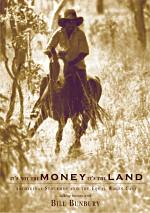|
action| stolen wages campaign Stolen
wages, missing Trust funds
— the fight for justice in Queensland

 |

LATEST
NEWS
FACT
SHEET | | | Marjorie
Woodrow, who has been waiting 60 years for her entitlements, has managed after
years of effort to dig up only a few months worth of documentation from a six-year
long apprenticeship. "We've got to produce all this evidence? Those trust
account books have disappeared out of the archive!" her son Des Benton said. Les
Ridgeway, who is trying to reclaim monies owed to his mother, grandmother and
great-aunts, said: "How do we get to prove anything when they've got no documents?" |
From 1904 to 1987, the Queensland Government withheld or underpaid
wages earned by Aboriginal workers. The State Government has offered a settlement
totalling $55million but this is only a fraction of the stolen wages. ANTaR
is currently running a "Stolen Wages" Campaign in support of Indigenous
Queensland workers who have not received wages for which they are entitled - which
ENIAR is supporting. Your assistance would be greatly appreciated.
See the Fact Sheet below for more details and ideas for
your letter. See the Latest News
for an update on the campaign. WHAT CAN I DO? Please
write personal letters to any or all of the addresses listed below indicating
that the financial settlements on offer to indigenous Queenslanders are grossly
inadequate and unjust. It is suggested that you refer to a maximum
of two points only from the Stolen Wages fact sheet to keep
your letter brief. Remember to include your postal addresses.
WRITE TO: ALSO The campaign has been extended
to New South Wales - Find out what you can do. Letters
to the Editor. Letters to Australian newspapers from foreigners
can have a real impact. Remember to include your postal addresses. Contact telephone
number(s) are required for letters to newspapers. It is suggested that you refer
to a maximum of two points only from the Stolen Wages fact sheet
to keep your letter brief.
Queensland Council of Unions. Write to the Queensland Council of
Unions expressing your support for their efforts to let their members and affiliates
know about this issue and to stop the injustices that continue on the matter of
Aboriginal workers' stolen wages.
PLEASE
SEND A COPY
of your letter to:
Download the Stolen
Wages Postcards (PDF 725kb) Thank you
for your support. FACT
SHEET researched by Dr
Rosalind Kidd, email: roskidd@linksdisk.com

Aboriginal stockmen and domestic workers were the underpaid backbone of the pastoral
industry for much of the 20th Century.
But while they rarely saw pay, the
pastoralist often supported entire communities. It was a "fuedal" arrangement
allowing families to stay in contact with the land and their laws.
Things
changed in 1965 when equal wages became the law for Aboriginal workers. |
Published May 2002. INTRODUCTION - This
fact sheet is to provide affected Aboriginal people, concerned members of the
general public, and lobby groups with basic data upon which to assess the current
Queensland Government campaign to shut down all litigation on unpaid, missing
and misused wages, savings and trust funds during decades of government control.
- A glance at the underpaid wages in any one year shows clearly
that this buy-off is an insult which nowhere near acknowledges the level
of financial confiscation endured by Aboriginal families. A glance at the
legal data shows clearly the Queensland Government
was constantly warned of systemic failures and of active and passive breaches
of its duty as a legal Trustee, but failed ever to implement the necessary checks
to prevent massive financial loss to its wards over many decades. Aboriginal poverty
is largely a construct of this system.
- Queensland Premier
Peter Beattie's scare tactic that litigation will take many years and millions
of dollars is solely determined by the government's willingness or otherwise to
provide promptly all information gathered to date for independent or judicial
assessment.
HISTORICAL BACKGROUND - Since 1897 Protection
Act Queensland government could declare any Aboriginal a ward of state & control
every aspect of their lives. People were forcibly interned on reserves (1938:
7525; 1968: 8500). From 1904 all employment, wages & savings were controlled
by government under compulsory labour contracts. From 1904 workers’ wages
went direct to police protector apart from "pocket money" retained by
employer for distribution during work period. From 1910 government took levies
from wages of people living on reserves.
- From 1919 government
took levies from wages of those not living on reserves. From 1919 government set
pastoral wages at 66% of white wage. "Every Aboriginal" on a reserve
must work for rations & shelter. In 1943 government set up Aboriginal Welfare
Fund to receive wages levies & profits from reserve enterprises, to be used
to develop enterprises on reserves. From 1950s government pays few shillings to
a few key workers on reserves.
- In 1968 government starts
wage economy on reserves; workers paid 50% state minimum wage. From 1968 equal
wages in pastoral industry; forced contracting ceases. From 1971 forced confinement
on reserves ceases. From 1972 forced control over wages & savings (bank books)
ceases, although people have to request to be free from financial management.
- From 1979 government knows underpaying reserve workers is illegal;
wage 72% of state minimum. In 1986 government paying reserve workers only 75%
of award. In 1985 seven Palm Island workers start action in Human Rights Commission
for legal wages. From 1987 government hands control of communities to Aboriginal
councils; budget insufficient to cover award rates.
- In
1996 government loses Human Rights Commission case on under award wages; refuses
to pay suggested compensation of $7000 to each of six workers. Workers commence
federal court action; government capitulates in 1997. In 2000 Beattie government
makes $25 million available to pay all workers after losing several more cases
on under award wages. Beattie government refuses to include mission workers in
above payout.
- From 2000 Queensland Aboriginal & Islander
Legal Service Secretariat (QAILSS) collects testimony from over 2000 people who
want to take action against the government for missing, unpaid and underpaid wages,
misused trust funds, unpaid child endowment, workers’ compensation, deceased
estates.
- In 2002 Beattie government makes offer of $55.6
million to pay $4000 to some people & $2000 to others as settlement for all
claims on any of these matters.

- financial + legal evidence
- addresses
to write to
Further information:
- Latest News
Related reports + links:
-
 Wharfies supporting equal wages, May Day march, Sydney 1965
Wharfies supporting equal wages, May Day march, Sydney 1965 | Secret
Country
October 2002 - Oral history recordings
are an inadequate tool in trying to find out what happened to Aboriginal stockmen
and their communities on cattle stations in Northern Australia, writes Neale Towart.
- Aborigines trapped by dole scheme: professor
October 5 2002 - The Aboriginal "work-for-the-dole" scheme is widely
regarded by indigenous leaders as the principal poverty trap for their families
and communities, leading anthropologist and activist Marcia Langton said last
night. - A New Deal? Indigenous development
and the politics of recovery
October 4, 2002 - Dr Charles Perkins Memorial
Oration. Delivered By Marcia Langton. - Money
that's black and white and spent all over
The
dollars may appear black, but there are plenty of "grey" areas. Not
all native title dollars are being used to Aboriginal advantage. They are being
used to help those opposing native title claims. They are being used to help other
landholders and the nation deal with the fallout of a High Court decision - the
landmark Mabo finding in 1992 that native title exists. - The 1966 Wave
Hill Strike: From
Little Things Big Things Grow: A Song By Paul Kelly and Kev Carmody.
- Centre
for Aboriginal Economic Policy Research
The Centre for Aboriginal Economic
Policy Research (CAEPR) is a multi-disciplinary social sciences research centre
at the Australian National University (ANU) with a primary focus on Indigenous
Australian economic policy and economic development issues, including native title
and land rights, social justice, and the socioeconomic status of Indigenous Australians. - ANTaR
Qld
|| click
to go to the top of this page |
European languages
 ours
+ others photo galleries ours
+ others photo galleries
You can make a difference

Aboriginal
life expectancy is twenty years less than other Australians. Indigenous infants
die at the same rate as those in impoverished countries.
›› Support
the Healing Hands Indigenous
Health Rights Campaign. | |